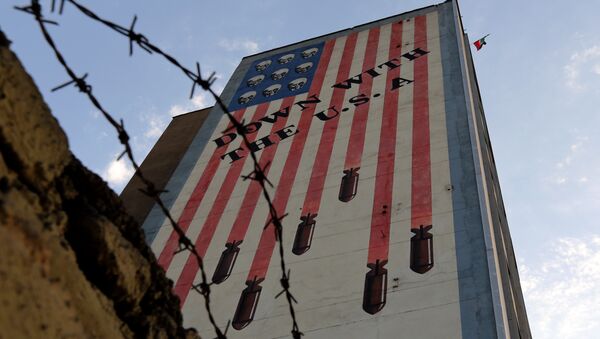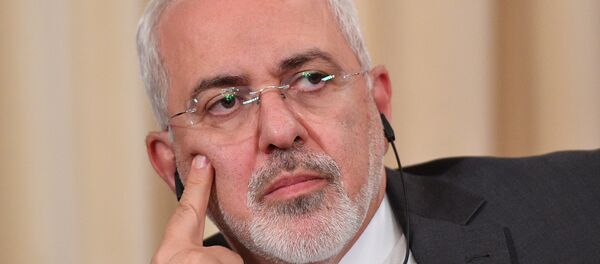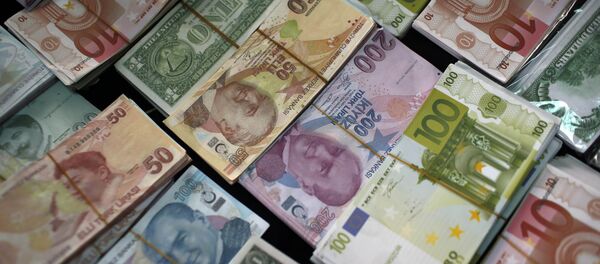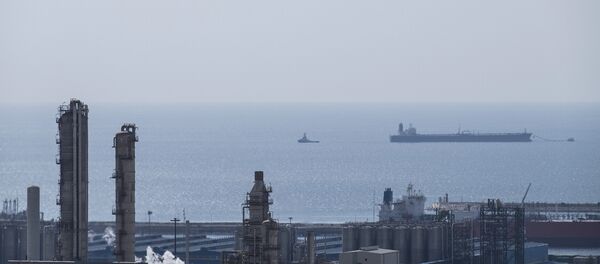Sputnik discussed this with Sami Hamdi, editor-in-chief of the International Interest and geopolitical risk consultant.
Sputnik: Does it come as a surprise to you that Iranian exports have been increasing despite hostile US measures?
Sami Hamdi: I don’t think it should come as too much of a surprise; I think the scale of it is, perhaps, surprising but not necessarily the reality that the sanctions are not having the desired impact on Iran that, perhaps, the US would like.
It seems that the US is the only country that is really pushing forward for sanctions on Iran, they and some of the Gulf states like Saudi Arabia and the UAE. I think the proof that the US is aware of this is the scurrying of US diplomats in various Western capitals desperately trying to win support for this.
Europe has also said that it is seeking to impose measures to protect its companies from the sanctions. India has stated it will not follow the sanctions, China may even ramp up their imports from Iran; you have Japan which is seeking to lobby the US for special exceptions in dealing with Iran, France, as well, has asked the US for special exemption in dealing with Iran.
It seems that the US and very few allies are the ones who are very keen on imposing these sanctions on Iran, so it’s not surprising at all that Iran has found that there is still an appetite for its goods, there still an appetite for its exports, and even if official means become more difficult to use as a result of US sanctions, there’s nothing to stop the likes of China or Russia from finding alternative measures.
Sami Hamdi: In theory yes, practically I can't see that happening, for number of reasons. First and foremost, let’s remember that two thirds of the oil on the market tends to come through the Hormuz Strait, so you would harm so many countries that Iran would find that even its own allies will not stand with that in the event it decided to close the Hormuz Strait.
Moreover, the threat of it is enough to suffice for what Iran wants to achieve; but I also think that Iran does not necessarily need to close the Hormuz Strait in order to apply pressure to the US. I do agree that the issue would go to the Security Council, it would go to the UN, there would be very tough language used against Iran if it ever decided to close Hormuz Strait. But I think this is highly unlikely, mainly because this is an extreme measure and I don’t think Iran is in an extreme situation where it needs to use it.
Iran still has a lot of political clout that it can use in order to apply pressure to the US. Let’s remember that Iran has militias loyal to it in Iraq, with regards to Iran it has four different political cards that it can play. Also, it has China on board;
Sputnik: Despite all these cards being played, how can you comment on the situation in Iran surrounding all of the sanctions? Do you think there are any good prospects in the future that would be instrumental in reversing the damage that was done to the Iranian economy on the back of the US pulling out of the JCPOA and sanctions?
Sami Hamdi: Trump is already suffering. In other words, the Iranians may very well be saying to themselves: if we wait it out for a year or a year and a half, Trump might not be in the White House anymore and we may have a Democratic president that may restore the nuclear deal once more.
In terms of internally, I think the way that Trump conducted himself with the terms of pulling out of the deal has caused a wave of sympathy for Rouhani. I think a lot of the anger in Iran is directed towards the establishment as a whole and a lot of it towards Khamenei, the supreme leader.
Sputnik: What kind of a new partnerships can we see being formed between Iran and China, or in what areas of partnership can we see an upswing?
Sami Hamdi: I think it’s important to remember that China has had extensive relations with the Iranians for quite some time, even during the years of the sanctions, although, perhaps, it wasn’t as overt as before. We all should also remember that Iran and Russia are allies, for example, on issues such as Syria.
I think what is interesting is how these trades will take place as opposed to what industries they will take place in. Will they be conducted in the dollar or will China insist on using the yuan, for example, in its trade deals with the Iranians. The Iranians would be more than happy to do so, especially, as they've seen African countries do it before. I think what will be interesting is the Russian-Iranian trade more than the China-Iranian trade.
Views and opinions expressed in this article are those of Sami Hamdi and do not necessarily reflect those of Sputnik.





